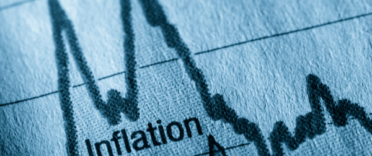 June figures show inflation has fallen by more than many experts had anticipated.
June figures show inflation has fallen by more than many experts had anticipated.
The ONS (Office for National Statistics) has announced that the rate of CPI (Consumer Prices Index) inflation has decreased to 7.9%. The CPI is a figure calculated to measure how certain goods and services in the UK have changed in price over the last year. The cost of a set list of food items, clothing, household goods and luxury products, along with fuel, energy and other services, has risen by 7.9% since June last year.
The drop is a significant fall from the 8.7% figure for May, though it remains the highest among G7 nations. A fall had been expected, but only to around 8.2%. This extra drop bucks a four-month trend of inflation growth exceeding forecasts. It is also the lowest inflation figure recorded since March 2022.
This downward trend should have an effect on interest rates. The BoE (Bank of England) has hiked interest rates 13 times in a row, up from a record low of 0.10% in December 2021 to 5.00% thanks to the latest rise of 0.50% in June 2023. These recent increases to the BoE base rate have been justified as an effort to reduce inflation to the bank’s target figure of 2%. Inflation falling faster than expected should allow the bank to slow rate rises and could lead to a lower peak rate. Reports now suggest that the BoE’s likely next move will be to raise rates by 0.25% at its next meeting on 3 August, rather than the 0.50% rise predicted before the latest ONS data was released.
Why has CPI inflation gone down?
CPI slowing faster than expected has been put down to a drop in fuel costs. Core inflation, which excludes energy and food prices, has fallen from 7.1% a month ago to 6.9%. Soaring fuel costs in recent years have had a huge impact on household bills for most people in the UK. While prices are not necessarily coming down, they have not increased as sharply in the last 12 months.
Food inflation also fell, from 18.3% to 17.4%. This is still very high and shows that weekly shops will continue to get more and more expensive for a long while yet.
It is important to remember that the rate of inflation going down does not mean the cost of living is getting cheaper. The products and services assessed as part of the CPI calculation are on average still going up in cost, just at a lower rate than they were a month ago.
What does the inflation data mean for savers?
Don’t be fooled into thinking that high inflation equals high interest rates and bigger returns on your savings. While you may have recently received a cheery email from your bank notifying you that your savings account is now paying more interest, it is not all good news. Inflation erodes the value of cash, so, as the cost of living goes up, your cash in the bank will buy you less. From this perspective, slowing inflation is good news for savers. You should also remember that banks can take a long time to pass higher rates of interest on to savers.
What does the inflation data mean for mortgages?
Falling inflation is expected to eventually reduce mortgage rates in the long term. The reason the BoE has raised interest rates in the past is to reduce demand for goods and services by leaving households with less money to spend. The theory is that with less demand, prices will go down and inflation will fall. The BoE is less likely to keep interest rates higher for longer if inflation is falling at a fast enough rate with existing measures in place.
It will likely take many more months of falling inflation for the BoE to begin to reduce rates – or even to stop increasing them – but the latest ONS announcement is a step in the right direction for homeowners worried about rising interest rates. You can check out the best mortgage rates currently available in the UK on our ‘Best mortgage rates in the UK’ page.





